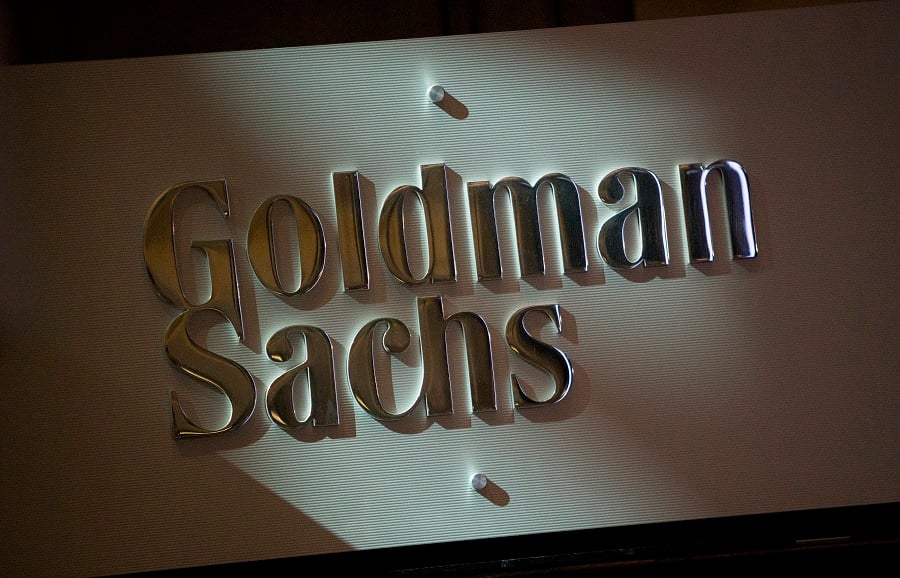

Goldman Sachs Group Inc. topped profit estimates as its equities trading unit posted a jump in revenue that was triple what analysts expected, capping off what it’s pitching as a year of transition.
The asset and wealth division helped drive the results, posting its highest quarterly revenue in two years on a gain tied to the sale of its RIA, Personal Financial Management. That helped counter fixed-income trading results and investment-banking fees that fell short of expectations.
“This was a year of execution for Goldman Sachs,” Chief Executive David Solomon said in a statement Tuesday. “With everything we achieved in 2023, coupled with our clear and simplified strategy, we have a much stronger platform for 2024.”
Goldman Sachs is trying to put behind it a year in which dealmaking remained depressed and losses on real estate investments and the consumer business dragged down profits. The company is more reliant than other major banks on dealmaking, and executives have linked a rebound in private equity as the key to ending a protracted slowdown in that business. The firm, whose performance in 2023 fell short of its own targets, is refocusing efforts on its Wall Street business and money-management ambitions.
The equities unit generated $2.61 billion in revenue, a 26% jump compared to expectations for an increase of just about 8%. That left the bank more than $1.5 billion ahead of its closest rival, Morgan Stanley, for the full year, helping to once again cement its standing as the leader in that business.
Goldman shares, which rallied at the end of 2023 to post a 12% advance for the year, slipped 0.3% to $376.50 at 9:45 a.m. in New York, compared with a 2.1% drop for the KBW Bank Index.
Net income was $2.01 billion, or $5.48 a share, on $11.3 billion in revenue in the fourth quarter. Earnings were 51% higher than last year.
Goldman’s asset management and wealth management business posted revenue of $4.39 billion, up 23% from a year earlier. Management fees contributed the biggest chunk as the bank highlights what it hopes will be predictable growth in those fees, which previously were overshadowed by its principal bets.
The bank trimmed its historical principal bets to $16.3 billion, according to a presentation on its website, dropping close to the $15 billion target it previously outlined. Fundraising from investors was supposed to help fill that void, and the firm reported that it has raised $251 billion in alternatives, running ahead of prior targets.
Assets under supervision rose 10% during the year, to a record $2.81 trillion. Goldman posted impairments tied to its commercial real estate exposure of $262 million.
Fixed-income traders brought in $2.03 billion, a drop driven by lower revenue from rates and currencies. While Goldman has benefited from volatile markets in recent years, its executives have said market-share gains and an increased focus on the financing business should reset the base at a high level in the trading unit.
Investment banking revenue of $1.65 billion fell short of analysts’ average estimate of $1.68 billion. Signs of life in capital markets helped lift fees from selling stock and raising debt for companies compared to the same period a year earlier. Still, debt underwriting revenue was $395 million, compared to analysts’ expectations of $439 million in the fourth quarter.
An uptick in new deal announcements have also lifted hopes of revival in the merger business, but realized fees from completed deals still came in 29% lower than a year earlier.
The bank is still in the process of attempting to get out of its credit-card partnerships with Apple Inc. and General Motors Co. after acknowledging defeat in its desire to storm the consumer lending market.
Results included a $529 million charge tied to the failures of Silicon Valley Bank and Signature Bank. The Federal Deposit Insurance Corp. levied a special assessment against large US banks to backstop uninsured depositors at those firms after they collapsed last year.

Blue Anchor Capital Management and Pickett also purchased “highly aggressive and volatile” securities, according to the order.

Reshuffle provides strong indication of where the regulator's priorities now lie.

Goldman Sachs Asset Management report reveals sharpened focus on annuities.

Ahead of Father's Day, InvestmentNews speaks with Andrew Crowell.

Cerulli research finds nearly two-thirds of active retirement plan participants are unadvised, opening a potential engagement opportunity.
Barely a decade old, registered index-linked annuities have quickly surged in popularity, thanks to their unique blend of protection and growth potential—an appealing option for investors looking to chart a steadier course through today’s choppy market waters, says Myles Lambert, Brighthouse Financial.
How intelliflo aims to solve advisors' top tech headaches—without sacrificing the personal touch clients crave
